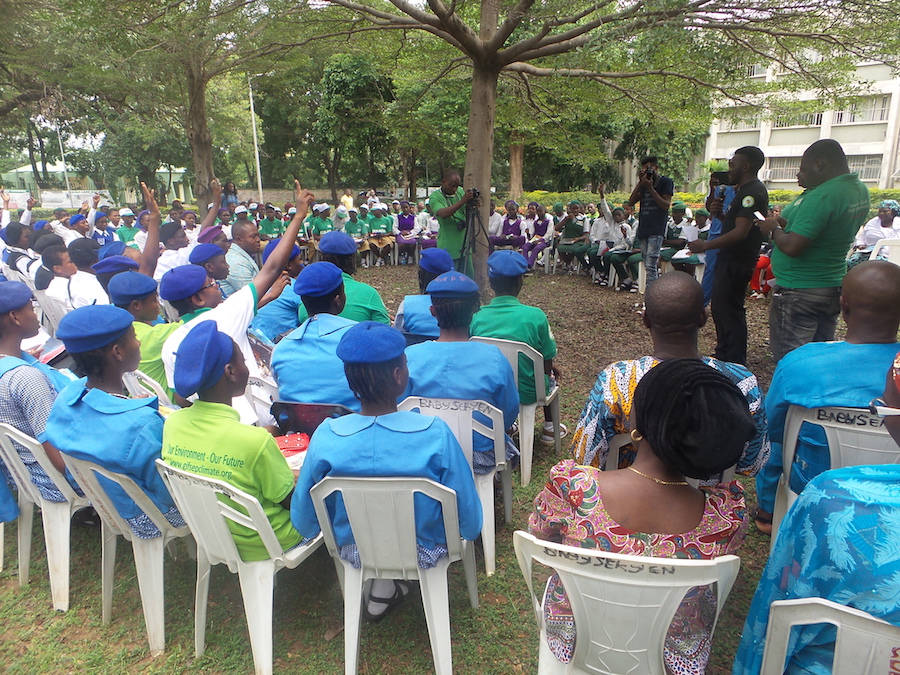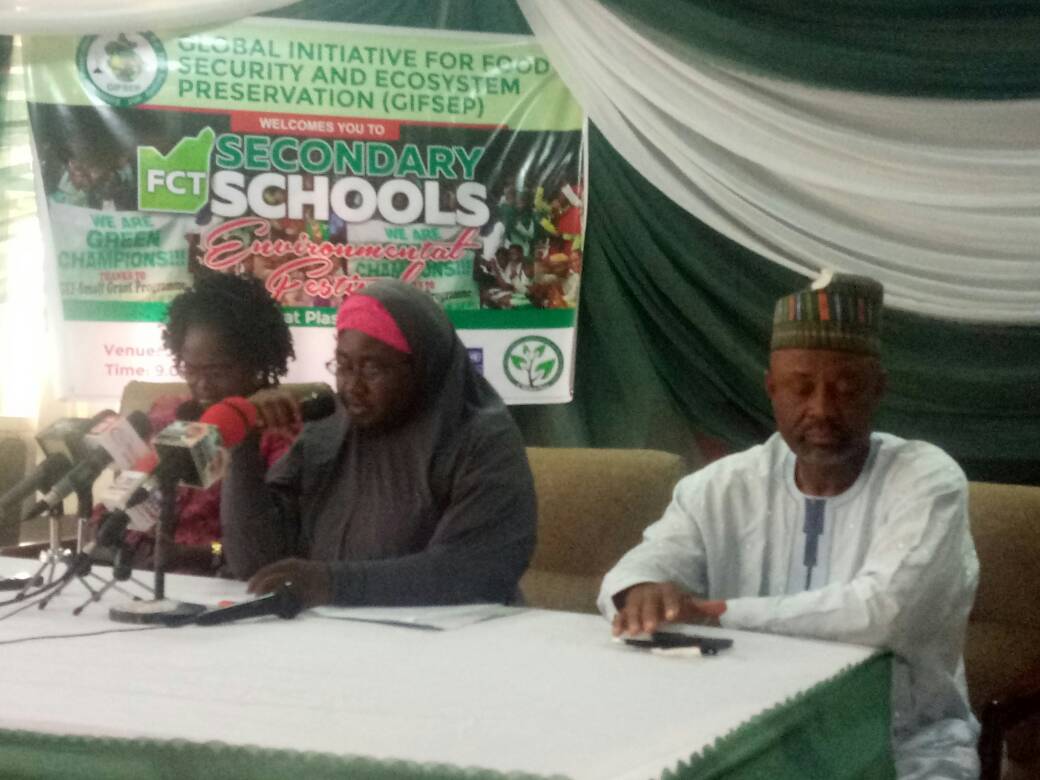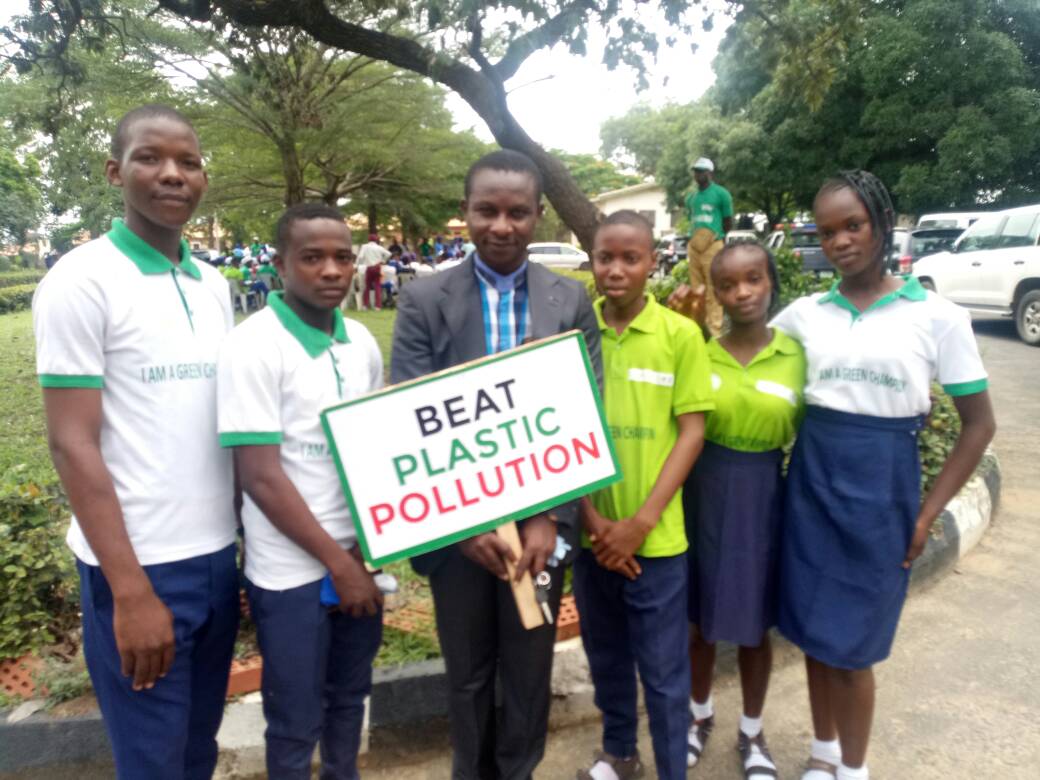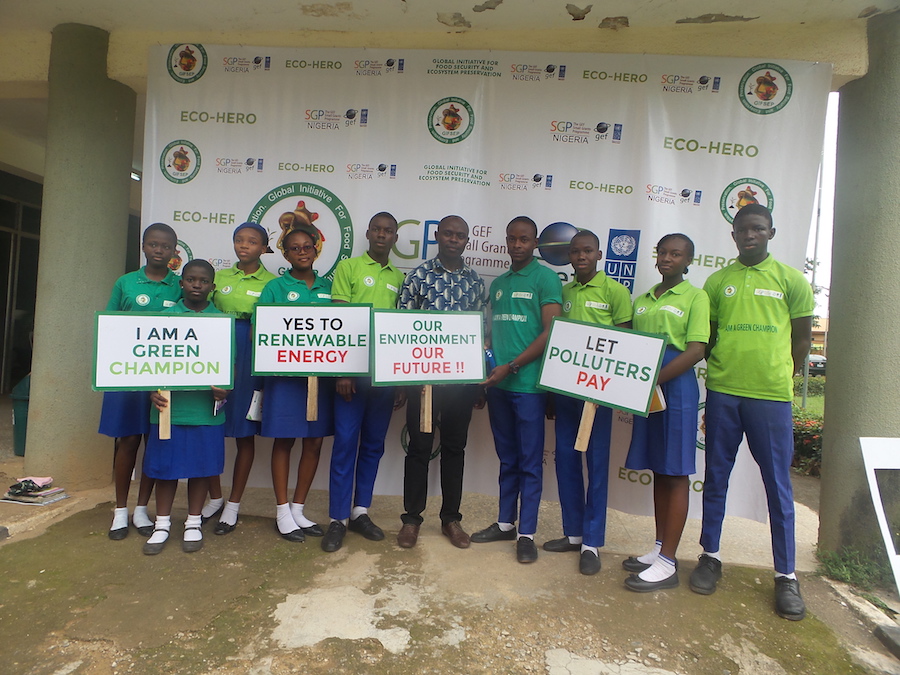
Climate and Sustainable Development Network (CSDevNet) in collaboration with one of her network members, the Global Initiative for Food Security and Ecosystem Preservation (GIFSEP), on the 5th of June 2018 held a capacity building/advocacy programme for some secondary schools in the Federal Capital Territory in commemoration of the 2018 World Environment Day.
The programme was also supported by the Global Environment Facility–Small Grant Program (GEF-SGP) implemented by the United Nations Development Program UNDP.
Executive Director, GIFSEP, David Michael, in his remark at the event held at the National Park headquarters Abuja, opined that recent narratives on climate change have left out secondary schools students. Michael, therefore reiterated the need to develop strategies for involvement and active participation of students to become ardent stewards of the environment and build their capacity to address the challenge of climate change.

The project according to him, “seeks to encourage and demonstrate the essence of collective measures to address climate change primarily by building skills of students in renewable energy and promote environmental stewardship through behavioral change. He disclosed that the project received the approval of FCT Secondary School Board and FCT Technical Board.
Speaking at the event, Atayi Babs, National Network Coordinator of CSDevNet commended the collaboration between CSDevNet and GIFSEP and called for more initiatives aimed at mainstreaming climate change into Nigeria’s educational policy at both Federal and State levels. “The imperatives of involving the generation-next of Nigerians in the concerted efforts against climate change cannot be over-emphasised as they represent veritable hopes for a cleaner, greener and resilient future,” Atayi added.
Also the National Coordinator, Global Environment Facility Small Grants Programme Mrs. Ibironke Olubamise who explained the essence of the event, noted that awareness campaign is an important component for the adaptation process to manage the impacts of climate change in Nigeria. While calling on the students to be conscious of the implications of environmental hazards, Olubamise added that the future of our communities, natural resources and ecosystems depends on how well we understand, value and protect the habitats and species that sustain our world.
“We need to be proactive and give young learners the tools to observe the effects of a changing climate for themselves. It’s one more way to invest in the future of our planet and let our children shape the world that soon will be theirs” she added.
On his part, the conservator General, National Park Service, Ibrahim Kusa Goni, stressed the need for environmental education to address current exploitation of resources through human activities. While calling on the youth to be active agents in developing environmental safety measures, he added that environmental conservation is an umbrella term that defines our daily activities to protect the planet, conserve its natural resources and improved quality of life.

Goni added that the campaign which is targeted at school children is drawn with the aim to inculcate in them the need to protect the environment from degradation in order to avoid its harmful effect on the society. “While younger youths are potential voters in affecting future policies; older ones hold decision-making status in the government and industry to actually shape strategic directions. Recognising this important demographic cluster means we need to reach out to their expectations and ideas.
“We must inculcate awareness amongst them on environmental stewardship, nurture lifelong skills to manage the environment sustainably and, ultimately to empower them to incorporate environmental issues as part of their lives and worldview. “If we lose them to a lifestyle defined by consumption and rent-seeking behaviour that consumes the resources of the future, our next generation will struggle in a world depleted of resources and a depressing lifestyle in a degraded environment. To address and pre-empt this, we need to strategically emphasize conservation of biodiversity in the formal education system within the secondary schools, teacher education institutes and higher learning institutions to ensure that our youth acquire sensitivity, skills and expertise towards conservation and environmental concerns. ”
In partnership with the Ministry of Education on advocating an Environmental Education (EE) policy, there is the need to test a pilot EE experimental model, to introduce Eco-Schools and Eco-Institutes programmes as well as conduct periodical awareness talks. “Ultimately, Nigeria should aspires to an Environmental Education goal that contributes to the improvement of Nigerian Environmental Citizenship. Young people have important environmental concerns and responsibilities because of their longer life expectancy, they will have to live for quite some time”, he added.
The highlight of the event was awards presentation to some schools that distinguished themselves in different areas of conservation of the environment.

